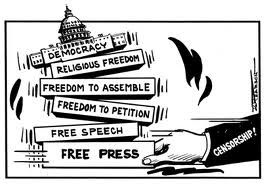[EDITORIAL] Let there be light and there was not
While countries around the world like Netherlands, United Kingdom, France and a host of others are making plans to halt the production of gasoline cars in favor of electric cars as soon as 2025; we can’t boast of stable power supply. This is the sad reality of a 57-year old nation.
Political manifestos over time are characterized by grand, rather unrealistic, goals for the power sector. These promises are usually snubbed by the administration once it assumes power. In September 2013, ExPresident Goodluck Jonathan handed over control of 15 state-owned electricity companies to new private owners. It was hoped that the move would encourage essential investment, but in reality, it has been a disaster (for lack of a better word). Even the President, Muhammadu Buhari, admitted that the issue is ‘no longer a laughing matter.”
The Minister of Power, Works and Housing, Babatunde Raji Fashola has highlighted lack of sufficient financial investment as one of the factors hindering adequate electricity supply to consumers. Ironically, Socio-economic Rights and Accountability Project (SERAP) revealed that an estimated N11 trillion has been lost to power sector corruption and it projected an increase of the money leakage to N20 trillion by 2020.
In the midst of these financial excesses, in Nigeria, only one in four have access to the power grid, and of those that do only a small minority have supplies of electricity for more than a few hours a day. “Epileptic” power outages are characteristic of a sector starved of investment: first as a state-owned monopoly and now, following privatization, from poorly conceived price controls and private regional distribution monopolies that have scared away necessary capital, impeded competition and discouraged new entrants to the market.
In Nigeria, the majority of electricity is generated by expensive small private diesel and petrol generators, and if a household cannot afford a generator they go without power supply. Not only does Nigeria lag massively behind the African average (shocking when you consider that Nigeria is Africa’s largest economy by GDP) our grid capacity per capita rounds, on a one decimal point basis, to zero. In fact, the average Nigerian, who uses 136KWH per year, consumes just 3 percent of the power of the average South African, 5 percent of the average Chinese citizen and, under a quarter of the average Indian. The government projects an increase in available installed grid capacity to 10GW by the end of 2014 — already woefully inadequate in the context of present demand.
Nigeria is the greenest populous country in the world, but it is so entirely by accident. We fuel a population north of 170 million — the seventh largest in the world — on an available installed grid electricity generation capacity of fewer than 6 Gig watts.
This lack of electricity is constraining our economy and inhibiting growth. Electricity is a major issue business owners confront in the daily operations of their business. The lack of electricity has very strong effects on economic output as it affects our national outlook of being the giant of Africa in darkness.
We recommend that the government look into alternative sources for energy generation like solar power and hydropower for electricity. Nigeria has an advantage in investing in solar energy because of the God-given gift of the sun which is almost constant all year especially in the Northern part of Nigeria. We can take an example from Morocco who has invested so much in solar power, they sell to the Europeans. More so, we can look into the abandoned dams by providing infrastructural capital to structure multiple turbines in them. This will ensure that no matter where the water flows, it will generate hydro-electricity. The benefits of solar electricity and hydro-electricity are the fact that it is affordable, renewable, abundant natural resources and doesn’t provide pollution therefore environmentally friendly. The citizens are urged to stop sabotaging government’s effort of providing this core social amenity. Activities like rewiring to boycott payment of tariff and extreme cases like vandalism are only a mockery of the little efforts the government as it is widely believed two wrongs don’t make a right.
Credit: Thanks to Opia Oscar (Group A Leader) for granting the permission to repost this article.
Drop your comments and upload your editorials so you can constructive feedback from fellow readers
m.facebook.com/theolajide

Comments
Post a Comment